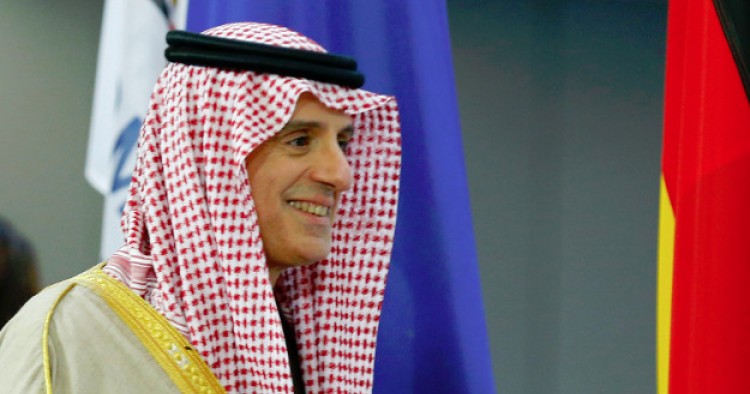Iran’s Fars News Agency (FNA), a mouthpiece of the Islamic Revolution Guards Corps (I.R.G.C.), has published interviews with Iraqi politicians and militia commanders about Saudi Foreign Minister Adel al-Jubeir’s February 25 visit to Baghdad and its potential implications for the war against the Islamic State and for Iraq’s relations with Iran. According to FNA, the Saudi top diplomat’s unannounced trip has raised a lot of questions inside Iraq because the Iraqi media had not reported on it until Jubeir arrived at the Baghdad airport.
Jawad al-Talibawi, a spokesman for the armed wing of Asaib Ahl al-Haq, a Shiite Iraqi militia group with close ties to the I.R.G.C., cautioned Iraq’s leaders that they should “be vigilant” about “the hidden goals behind Jubeir’s trip to Baghdad.” In the exclusive interview with FNA, Talibawi further warned that Riyadh was seeking the release of Saudi nationals imprisoned in Iraq on terrorism charges.
Renas Jano, a lawmaker and member of the Kurdistan Democratic Party, speculated that pressure by Western countries has forced Riyadh to change its policies vis-à-vis Iraq and described Jubeir’s landmark visit as a “positive step toward opening a new chapter” in bilateral relations between the two Arab states.
Aziz Jabr, an Iraqi political analyst, however, expressed the concern that Riyadh’s diplomatic outreach to Baghdad could adversely affect Iraq’s relations with Iran.
Comment: Tehran and its allies in Iraq are concerned that Jubeir’s rare visit to Baghdad may be a prelude to a thaw in relations between the two Arab neighbors at the expense of Iran’s interests and ambitions in Iraq and the broader region. Quoting Kuwaiti daily al-Qabas , FNA also reports that Jubeir’s trip will be followed by a visit by Iraqi Prime Minister Haider al-Abadi to Riyadh and a subsequent official visit by Saudi Arabia’s Crown Prince Mohammed bin Naif bin Abdulaziz to Baghdad.
Unlike the Iranian press, however, the media in the Gulf region hoped that Jubeir’s meeting with Iraqi leaders would help regional stability and the fight against terrorism. “The goal is clear and direct,” wrote an opinion piece in Al Arabiya. “There is a desire to bring Iraq to the Arab fold and to discuss coordination with the country to curb terrorism, especially considering the fact that the menace is expanding over vast areas of Iraq and Syria.”
The Middle East Institute (MEI) is an independent, non-partisan, non-for-profit, educational organization. It does not engage in advocacy and its scholars’ opinions are their own. MEI welcomes financial donations, but retains sole editorial control over its work and its publications reflect only the authors’ views. For a listing of MEI donors, please click here.













